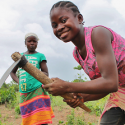Youth Market Place
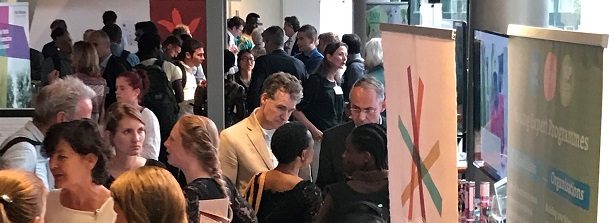
During the foodFIRST conference on June 1, 2018, the Food & Business Knowledge Platform (F&BKP), AgriProFocus and the Young Expert Programmes (YEP Agrofood and YEP Water) organized a workshop focusing on youth entrepreneurship in agricultural transformation. In addition, during the lunchbreak, a “Youth Market Place” was organized, in order for participants of the conference to get familiar with a variety of successful initiatives of organizations in this field. Several NGOs, networks and knowledge institutes presented their work related to youth in agro-food systems. You can find these initiatives below, in alphabetical order.
Agriterra
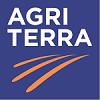 Agriterra provides high quality, and hands-on advice, training and exchange services, to cooperatives and farmer organisations with maximum impact for socio-economically strong and productive rural areas.
Agriterra provides high quality, and hands-on advice, training and exchange services, to cooperatives and farmer organisations with maximum impact for socio-economically strong and productive rural areas.
Agriterra has been championing youth involvement at cooperative level through the formation of youth councils and youth being represented in the boardroom. This is done as a realisation that youths can do much more if they are involved at board level in decision making. Agriterra is also embarking on a capacity building trajectory, as part of which a two-day Kick-Off Workshop for Youth Participation has been developed to stimulate interactive discussions and knowledge sharing about youth involvement in an environment of mutual understanding and openness among the participants. Agriterra strongly believes in leadership and the power of role models; from cooperatives and farmers associations to individual member farmers and employees of these organisations. Following this vision, Agriterra selects 10 motivated youngsters from all over the world for its Youth Leadership Masterclass 2018. Role models and potential leaders get invited for a study tour to the Netherlands to learn and exchange knowledge about different aspects of youth participation and leadership.
AgriProFocus
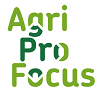 AgriProFocus brings together businesses, civil society, knowledge institutes and governments working towards food security. Rooted in the Netherlands, AgriProFocus is active in 12 countries in Africa and South-East Asia.
AgriProFocus brings together businesses, civil society, knowledge institutes and governments working towards food security. Rooted in the Netherlands, AgriProFocus is active in 12 countries in Africa and South-East Asia.
Many organizations, including members of AgriProFocus, are working with youth, develop projects and programmes with youth as specific target group, offering services focussed on increased participation of youth and their opportunities within the agricultural value chain. AgriProFocus facilitates sharing and collaboration between these initiatives and creates dialogue with young agripreneurs themselves, through linking, learning and leadership, so that support to youth is holistic and synergized. This approach results in a Community of Practice on youth (in collaboration with F&BKP), Trendsetter Caravans in Kenya and Mali, a Hack-a-farm Innovation Camp in Indonesia and a vibrant community of exchange on the AgriProFocus online platform.
CTA
 The Technical Centre for Agricultural and Rural Cooperation (CTA) is a joint international institution of the African, Caribbean and Pacific (ACP) Group of States and the European Union (EU). Its mission is to advance food security, resilience and inclusive economic growth in ACP countries through innovations in sustainable agriculture.
The Technical Centre for Agricultural and Rural Cooperation (CTA) is a joint international institution of the African, Caribbean and Pacific (ACP) Group of States and the European Union (EU). Its mission is to advance food security, resilience and inclusive economic growth in ACP countries through innovations in sustainable agriculture.
CTA promotes youth entrepreneurship and employment through access to business development services and information and communication technologies (ICT). CTA strengthens the capacities of targeted young entrepreneurs and the institutions that support them by promoting youth engagement in value chains, leveraging access to finance and markets; showcasing best practices and innovative business models; and creating pathways to jobs in established agribusinesses. CTA implements youth focused projects in partnership with institutions such as IITA, IFAD, AGRA, Suguba, AfDB, AfricaRice, USTADI Foundation, Syngenta Foundation, Yam-Pukri, PROPAC, and various private and governmental institutions. These include:
- The Pitch AgriHack talent initiative supporting young digital entrepreneurs
- Promoting youth entrepreneurship and job creation in West Africa’s rice value chain
- Youth economic empowerment through agribusiness in Kenya
- Innovative enterprise development and market linkages for young agripreneurs in Burkina Faso
- Accelerating innovative and sustainable cassava business models for women and youth in Central Africa
- Increasing dairy productivity and incomes for small holder farmers, and youth enterprise development in East Africa
Day for Change Foundation
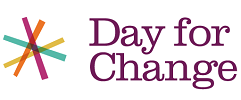 Day for Change Foundation offers a practical educational package to encourage young people to become young entrepreneurs in agri-business. Since 2006, Day for Change Foundation offers primary and secondary schools in the Netherlands the opportunity to participate in an unique education project on global citizenship, entrepreneurship and inclusive finance. During the project, pupils start a small business with a microcredit. The profit they make is used to support inclusive finance projects in developing countries.
Day for Change Foundation offers a practical educational package to encourage young people to become young entrepreneurs in agri-business. Since 2006, Day for Change Foundation offers primary and secondary schools in the Netherlands the opportunity to participate in an unique education project on global citizenship, entrepreneurship and inclusive finance. During the project, pupils start a small business with a microcredit. The profit they make is used to support inclusive finance projects in developing countries.
The method used by Day for Change in the Netherlands could be useful for and applicable to schools in developing countries. This is one of the ways to contribute to the engagement of young people in the agricultural sector. Day for Change can support local partners and teachers in the development of an interactive module for primary schools (age 11-14 years) and (agricultural) colleges, based on the method Day for Change uses in the Netherlands. In 2017, Day for Change has started a collaboration with Woord en Daad and Dedras in Benin (a local partner of Woord en Daad). This pilot at primary schools is still going on.
Edukans
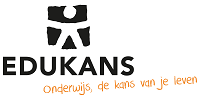 Edukans is an international non-governmental organisation based in Amersfoort, The Netherlands. The NGO has 4 country offices in Africa, in Malawi, Kenya, Ethiopia and Ghana. From these five locations and in other countries Edukans improves the quality of education and technical and vocational education and training.
Edukans is an international non-governmental organisation based in Amersfoort, The Netherlands. The NGO has 4 country offices in Africa, in Malawi, Kenya, Ethiopia and Ghana. From these five locations and in other countries Edukans improves the quality of education and technical and vocational education and training.
Edukans aims at creating opportunities for future generations through education and the 7-steps to work approach, which is a step-by-step plan for youth to acquire relevant skills they require for open vacancies. In this approach Edukans involves the local businesses to guarantee a high employment rate after our programs.
Food & Business Knowledge Platform
 The Food & Business Knowledge Platform (F&BKP) noticed a demand from Dutch and related actors working on food security in developing countries that they have an interest in the role of youth in agro-food systems. In response to this growing interest of engaging with youth, the F&BKP have started to explore the work of (international) organizations on youth in agri-food systems, to identify the key themes, synergies and knowledge questions. A mapping was created by the F&BKP as an inventory of the ambitions of key international organizations in the field of development that engage with youth in food systems. The exploration also gives a first glance of subthemes that various actors in the field of youth and agriculture focus their work on.
The Food & Business Knowledge Platform (F&BKP) noticed a demand from Dutch and related actors working on food security in developing countries that they have an interest in the role of youth in agro-food systems. In response to this growing interest of engaging with youth, the F&BKP have started to explore the work of (international) organizations on youth in agri-food systems, to identify the key themes, synergies and knowledge questions. A mapping was created by the F&BKP as an inventory of the ambitions of key international organizations in the field of development that engage with youth in food systems. The exploration also gives a first glance of subthemes that various actors in the field of youth and agriculture focus their work on.
Furthermore, the F&BKP in collaboration with AgriProFocus hosted several Community of Practice Meet-ups on Youth in agrofood systems. The objective of the CoP is to promote more synergy and coherence between the different initiatives of stakeholders. Participants can learn and provide feedback on each other’s work, identify knowledge questions and ideas for joint action, find innovative solutions for urgent issues, as well as inspiration for collaboration. The F&BKP will further identify current knowledge needs on this topic in order to stimulate more synergy in this field and to create a coherent knowledge agenda for further follow-up.
In the F&BKP Knowledge Portal the topic of youth is also covered, to share knowledge, latest trends and developments in the field of youth in agriculture. Do you have interesting knowledge products in the field of youth in agrofood systems? You can share them on the Knowledge Portal. Uploaded items always link directly to your original source.
HAS University of Applied Sciences
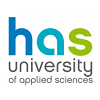 HAS University of Applied Sciences is dedicated to education, applied research and knowledge exchange in the field of agribusiness, food and the environment. Our core strength is the collaborative effort that we undertake with the private sector in all of our educational and research activities.
HAS University of Applied Sciences is dedicated to education, applied research and knowledge exchange in the field of agribusiness, food and the environment. Our core strength is the collaborative effort that we undertake with the private sector in all of our educational and research activities.
International Food & Agribusiness (IFA) – At our main campus in Den Bosch, one of our bachelor study programmes is International Food & Agribusiness (IFA). This English-taught international programme is focused on the global food system and how this can be transformed into a more sustainable system. What are the key characteristics that shape the current food system and how does it function? What impacts does it generate in terms of food and nutrition security, business development, and the natural environment? Which sustainability issues are challenging the current food system? How can these challenges be tackled, and what is the role of businesses, NGOs and governments in this? These are some of the key questions that IFA students are exploring during their 4-year study programme.
International Business & Development – Closely aligned with the core focus of the IFA programme, the minor International Business & Development is a study course that challenges 3rd-year bachelor students to investigate a real-life start-up agribusiness case in a developing country. Acting as advisors to the start-up entrepreneurs, the students work in groups to provide the start-ups with strategic advice on how to sustainably strengthen and scale up their newly initiated businesses.
ICCO Cooperation
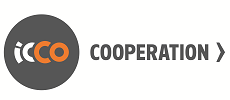 ICCO and Woord en Daad work on amplifying opportunities for youth in agri-business by developing the “human capital” of youth as well the “business environment”. To employ the large numbers of job seekers and create compelling opportunities for youth in the African agri-food industry transformation, scaling and new technologies are needed.
ICCO and Woord en Daad work on amplifying opportunities for youth in agri-business by developing the “human capital” of youth as well the “business environment”. To employ the large numbers of job seekers and create compelling opportunities for youth in the African agri-food industry transformation, scaling and new technologies are needed.
Our goal is a high-performance agri-food sector that provides male and female youth decent and sustainable income opportunities to build strong and resilient societies. We have outlined a program with 4 tracks:
- Self-employment: supporting youth that work in agricultural production and in the informal sector by making work in agri-production more rewarding, while on the other hand creating more diverse jobs, such as in processing.
- Employment: the number and quality of trained technical and professional personnel in agriculture, for example for jobs in marketing, machinery operation/repair, transport, logistics, and quality control, lag behind in demand. We offer brokering services that match the demand of employers with the offer on the labour market.
- SME support: in order to spur job creation, there is a need to invest in the development of start-ups and and pre-growth SMEs. We provide youth with an entrepreneurial mind-set with access to finance, business skills training and access to markets and business networks.
- Enabling environment: Youth are more productive in agri-business if they profit from a favourable business climate. We and our partners lobby for better access to (foundation, soft, technical, business) skills training, means of production (improved seeds for example, land), finance, markets and business networks.
ICRA
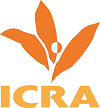 ICRA: fuelling the potential of youth – from student to agripreneur. ICRA is dedicated to strengthen youth in agriculture through learning and coaching. At ICRA, we see the immense and rapidly growing young population in many emerging markets as the (future) engines of a strong and resilient agribusiness sector. This is why all of our work revolves around engaging with- and supporting youth.
ICRA: fuelling the potential of youth – from student to agripreneur. ICRA is dedicated to strengthen youth in agriculture through learning and coaching. At ICRA, we see the immense and rapidly growing young population in many emerging markets as the (future) engines of a strong and resilient agribusiness sector. This is why all of our work revolves around engaging with- and supporting youth.
We offer support to youth in the agribusiness sector in the following way;
- Courses – ICRA trains education and research professionals on interactive learning, research and rural innovation. A strong focus lies on how to engage with students and how private sector examples can bridge the much-needed gap between theory and practice.
- Organizational Strengthening – ICRA works with universities and vocational education institutes to develop engaging programs & curricula that demonstrate the potential of the agribusiness sector. ICRA provides support to prepare the next generation of highly skilled agri-preneurs; ready to enter the labour market.
- Agribusiness Coaching – ICRA supports young “agripreneurs” by strengthening their skills to connect, collaborate, negotiate and lead profitable agribusinesses. ICRA focuses on guiding youth in building sustainable and profitable linkages with input- and output markets, gaining the much-needed trust from other stakeholders and access to credit.
NAJK: for daring young farmers
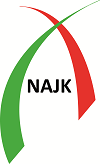 NAJK is committed to defending the interests of young Dutch farmers. NAJK has around 8.000 members and works both on a local and a European level. NAJK maintains close relationships with important stakeholders like Ministry of Agriculture, Nature and Food Quality, LTO and CEJA. The future of young people engaged in farming is the main focus.
NAJK is committed to defending the interests of young Dutch farmers. NAJK has around 8.000 members and works both on a local and a European level. NAJK maintains close relationships with important stakeholders like Ministry of Agriculture, Nature and Food Quality, LTO and CEJA. The future of young people engaged in farming is the main focus.
NAJK offers a range of learning modules in which farmers learn about the best ways to take over a farm and how to read accountant reports. Also, NAJK develops projects and activities that stimulate the development of young farmers, like debates.
ProPortion
 ProPortion’s mission is to accelerate the social entrepreneurial sector impacting low-income communities, by applying and spreading the power of design-thinking. Vijana Reloaded is one of the projects and envisions a future where young women & men (18-35) living in rural Kenya are the driving force behind creating jobs for themselves and their fellow youth, locally. Vijana Reloaded offers youth who want to start their own business a hands-on program to boost their entrepreneurial skills, ICT skills and social skills and kick-start them to become successful entrepreneurs.
ProPortion’s mission is to accelerate the social entrepreneurial sector impacting low-income communities, by applying and spreading the power of design-thinking. Vijana Reloaded is one of the projects and envisions a future where young women & men (18-35) living in rural Kenya are the driving force behind creating jobs for themselves and their fellow youth, locally. Vijana Reloaded offers youth who want to start their own business a hands-on program to boost their entrepreneurial skills, ICT skills and social skills and kick-start them to become successful entrepreneurs.
Business-in-a-box – For youth who are eager to get into business, but lack a business idea, we are seeking partnerships to develop business-in-a-box models that the youth can adopt and implement as micro-entrepreneurs.
Agri-Vijana: Youth as service providers in the potato value chain – A one-year pilot started in January 2018 to develop the first ‘business-in-a-box’ in partnership with SNV and SoilCares. We use a human-centered design approach, which means that we are actively involving local youth, farmers and stakeholders during the research, design and implementation phase. Based on the field research phase we identified opportunities for rural youth to provide extension services to potato farmers. Potato is one of the key crops for food security in Kenya, but the sector is under developed and unorganized. Potato farmers lack quality agronomy information, access to certified seeds, fertilizer advice, market linkages etc. In June we will validate a number of service ideas around: distribution of certified potato seeds, digital soil testing, linkages to fertilizers, pesticides and market linkages.
SNV
 SNV’s mission is to make a lasting difference in the lives of millions of people living in poverty. By sharing our specialist expertise in Agriculture, Energy and Water, Sanitation & Hygiene, we contribute to solving some of the leading problems facing the world today – helping to find local solutions to global challenges and sowing the seeds of lasting change. We acknowledge that sustained poverty reduction requires people living in poverty to both contribute to and benefit from growth, while having access to basic services. With this in mind, our work focuses on four essential factors: inclusive development, systemic change, local ownership, and contextualised solutions.
SNV’s mission is to make a lasting difference in the lives of millions of people living in poverty. By sharing our specialist expertise in Agriculture, Energy and Water, Sanitation & Hygiene, we contribute to solving some of the leading problems facing the world today – helping to find local solutions to global challenges and sowing the seeds of lasting change. We acknowledge that sustained poverty reduction requires people living in poverty to both contribute to and benefit from growth, while having access to basic services. With this in mind, our work focuses on four essential factors: inclusive development, systemic change, local ownership, and contextualised solutions.
About opportunities for youth employment (OYE) – Our target group consists of underprivileged youth in rural and urban settings, who normally do not have access to vocational skills, finance, or labour opportunities. Over the past four years, SNV has implemented youth employment programmes across agriculture, energy, and WASH. In 2017, we worked on six dedicated youth employment projects in seven countries for a total value of 55 million euros. We are on track to meet our aggregated target: employment of 80,000 youths. In addition, many of our other projects incorporate youth employment. SNV’s Opportunity for Youth Employment (OYE) approach is guided by concrete employment opportunities (pull), skills training (push), plus market matching, access to finance, and mentoring of youth in self-employment and enterprise development (match). Our OYE approach builds upon our strong network of local firms working in the agriculture, energy, and WASH sectors. Funding for our work comes from public and private institutions.
Wageningen CDI
 Wageningen Centre for Development Innovation (WCDI) – Knowledge in Action: Youth Inclusion in Food Systems. WCDI focuses on strengthening food systems with social inclusion, gender and youth perspectives. WCDI’s seeks to put ‘knowledge in action’, through capacity development, advisory services, action research and programme implementation. In order to realise ‘Youth inclusion in food systems’, we seek to develop a system-oriented perspective that takes into account complexity thinking and the need for multi-stakeholder collaboration.
Wageningen Centre for Development Innovation (WCDI) – Knowledge in Action: Youth Inclusion in Food Systems. WCDI focuses on strengthening food systems with social inclusion, gender and youth perspectives. WCDI’s seeks to put ‘knowledge in action’, through capacity development, advisory services, action research and programme implementation. In order to realise ‘Youth inclusion in food systems’, we seek to develop a system-oriented perspective that takes into account complexity thinking and the need for multi-stakeholder collaboration.
The following key areas are important to us when it comes to youth inclusion:
- Promoting inclusive sector transformation with special attention to youth collaborative leadership and entrepreneurship
- Strengthening governance structures along (urban-rural) value chains and agribusiness clusters for the inclusion of youth.
- Developing individual competences for young professionals, including coaching on strategic positioning within partnerships.
With Wageningen Centre for Development Innovation, our agenda is to:
- Develop sector approaches, participatory research and programmes where youth are included as key actors in food systems, agricultural sectors and value chains, and market-led interventions.
- Broker and facilitate multi-stakeholder partnerships focused on youth-sensitive agribusiness clusters and entrepreneurship development.
- Provide youth inclusive knowledge products such as learning trajectories, interactive courses, training of trainers and contextualised tools for inclusive youth development in agri-food systems.
Young Expert Programmes (YEP)
 The Young Expert Programmes (YEP), consisting of YEP Agrofood & YEP Water, is to offer young Dutch and local professionals the opportunity to gain experience abroad and to take their first steps in an international environment through Dutch organisations. The Young Experts are placed on projects that are related to the Agrofood and Water themes and that contribute to the goals the Dutch government has set with regards to development cooperation. Dutch companies, knowledge institutions and NGO’s can submit a proposal for an international development aid and trade project for the deployment of a Young Expert in a number of eligible countries.
The Young Expert Programmes (YEP), consisting of YEP Agrofood & YEP Water, is to offer young Dutch and local professionals the opportunity to gain experience abroad and to take their first steps in an international environment through Dutch organisations. The Young Experts are placed on projects that are related to the Agrofood and Water themes and that contribute to the goals the Dutch government has set with regards to development cooperation. Dutch companies, knowledge institutions and NGO’s can submit a proposal for an international development aid and trade project for the deployment of a Young Expert in a number of eligible countries.
The number of young professionals in the Agrofood and Water sectors that have international experience is steadily declining across The Netherlands and most of the world. The YEP Programmes are established to ensure the continued availability of Young Experts and their expertise for the Dutch Agrofood & Water sectors in the future: invest in the development of human capital!
The YEP Programmes are carried out jointly by the Ministry of Foreign Affairs, the Netherlands Water Partnership (NWP) and the Food & Business Knowledge Platform.
YPARD – Young Professionals for Agricultural Development
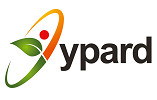 YPARD is a global network by youth and for youth across the agricultural development spectrum. It has around 14,000 members registered internationally and 60 country representatives, including the Netherlands. Our main objectives are: 1) To facilitate the exchange of information and knowledge among young professionals across disciplines, professions, age and regions; 2) To broaden opportunities for young professionals to contribute to strategic agricultural research and development (ARD) policy debates; 3) To promote agriculture among young people; and 4). To facilitate access to resources and capacity building opportunities.
YPARD is a global network by youth and for youth across the agricultural development spectrum. It has around 14,000 members registered internationally and 60 country representatives, including the Netherlands. Our main objectives are: 1) To facilitate the exchange of information and knowledge among young professionals across disciplines, professions, age and regions; 2) To broaden opportunities for young professionals to contribute to strategic agricultural research and development (ARD) policy debates; 3) To promote agriculture among young people; and 4). To facilitate access to resources and capacity building opportunities.
Amongst many other achievements, here are a few key achievements:
- YPARD Nepal set up a Student-Farmer Interaction Program which provided farmers with technical and/ or advisory information on production and management techniques, and at the same time facilitated two-way learning between agri-students and farmers.
- YPARD Kenya has been consulted in the development of Kenya’s agribusiness strategy policy.
- Sent youth delegations to 50 national and international conferences
Currently, some of our next steps are the development of YPARD Strategic Plan 2018-2022, contributing to the development of a mentoring toolkit to enable youth leaders to develop their own in-country mentoring programs, with testing and improving in different contexts and to expand youth aspirations evidence base by building on existing work with research institutions.
What we aspire and need?
- Talk with youth, not about youth: promote youth engagement in debates on sustainable food systems.
- Be a key partner in advising on youth strategy design and curricula reform
- Encourage the innovativeness of youth to shape sustainable food systems
- Upscaling mentoring programs across the YPARD network (currently YPARD Nepal, YPARD Nigeria and YPARD Philippines have set up their own mentoring programs).

